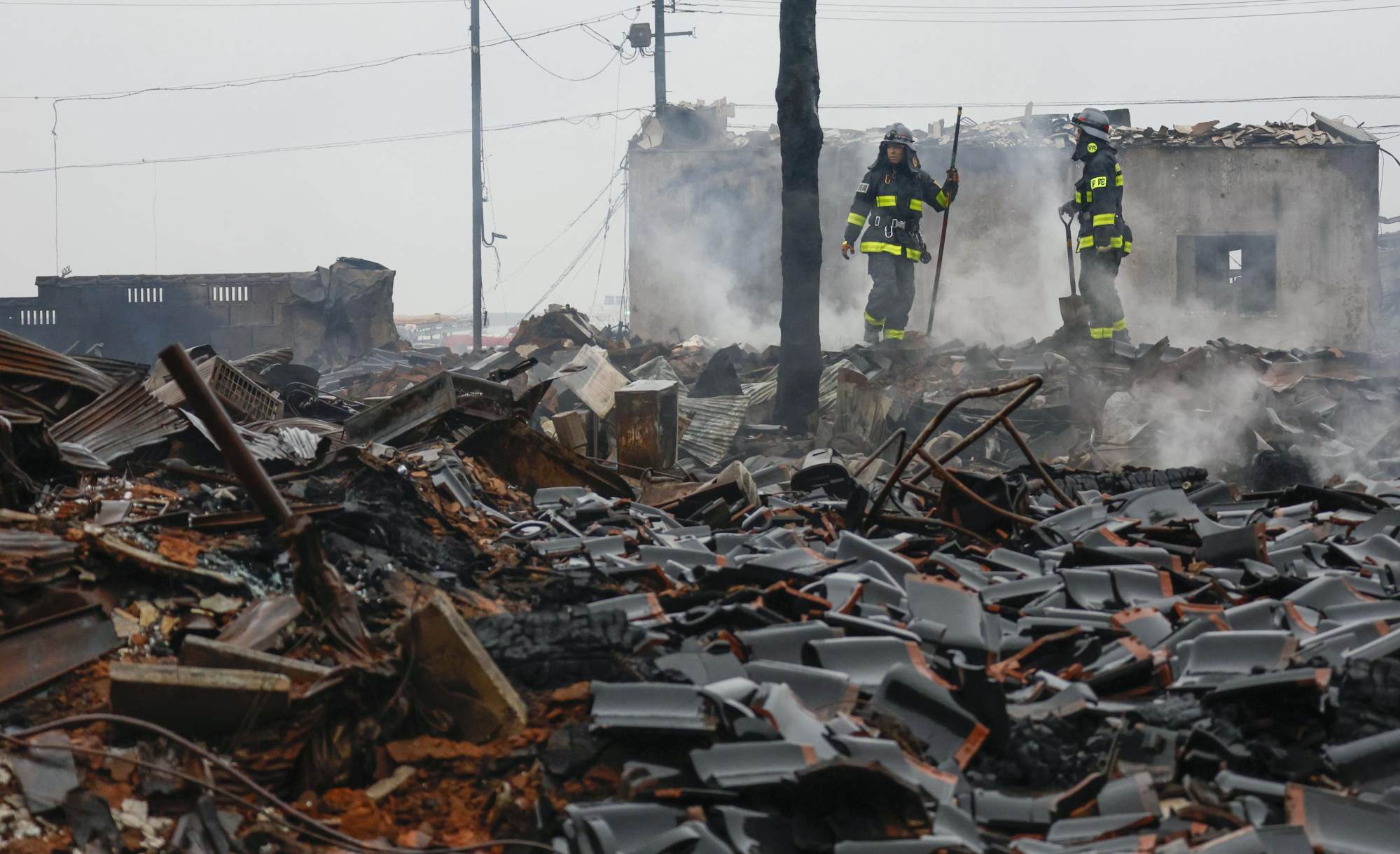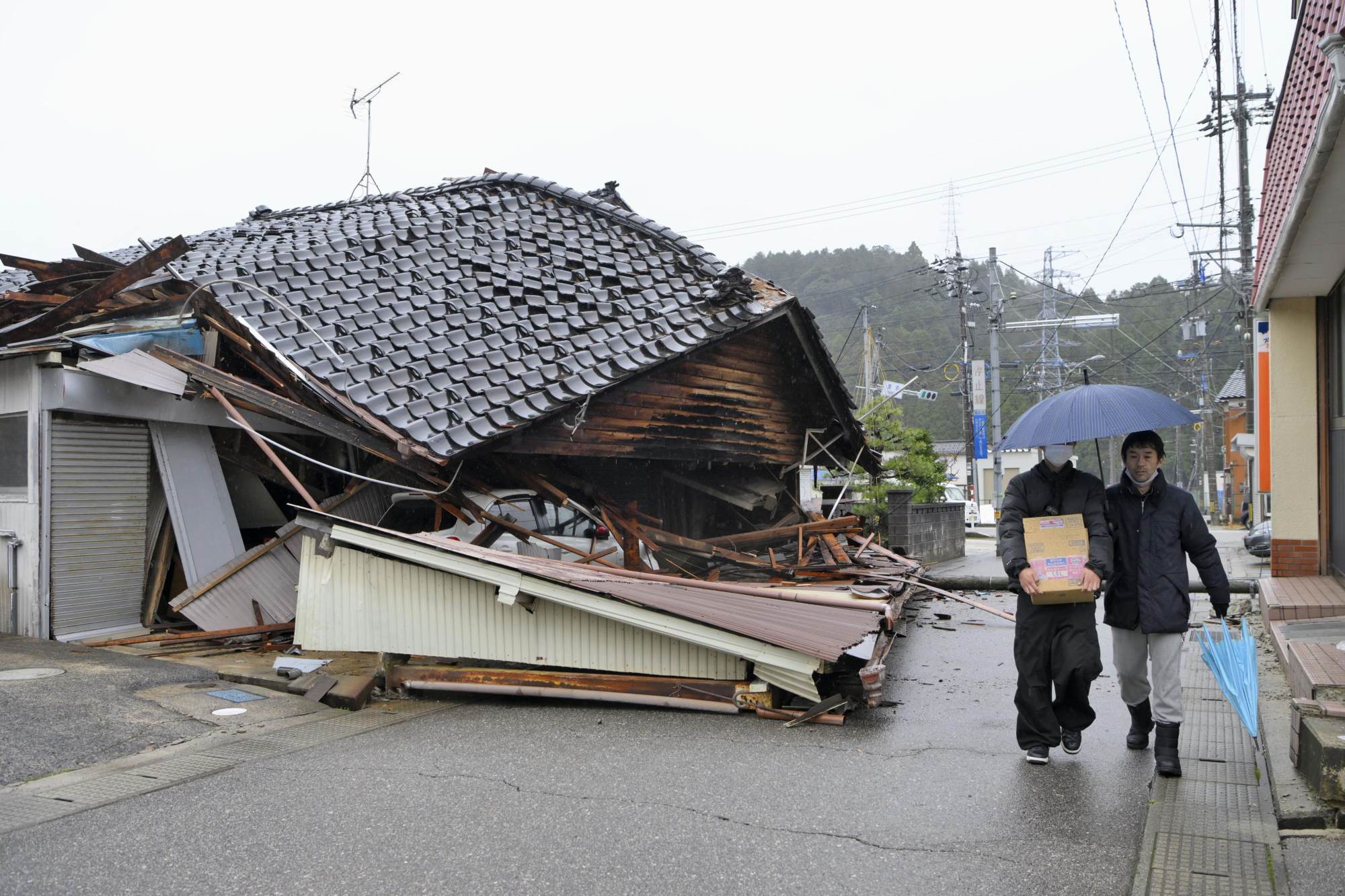Fake posts about Japan earthquake put spotlight on nuisance actors, scammers: ‘all about money’
The Japanese government is calling on the public not to be taken in by fake social media posts with inaccurate information about the earthquake that struck the central region on New Year’s Day, or fall for false appeals for financial help.
One of the biggest concerns has been accounts posting fake calls to help rescue individuals trapped beneath rubble, potentially diverting help from other victims. Given that the critical 72-hour window for rescuers to reach victims expired at 4pm on Thursday, every minute could mean the difference between life and death, officials have said.
Authorities say there have been several different types of misinformation messages sent since the magnitude-7.6 tremor toppled buildings and triggered a series of powerful tsunami and fires that have destroyed hundreds of buildings.
Some messages have been posted by people claiming to have lost their homes and possessions and providing a link to a page where well-wishers can send money. Some of these accounts may be genuine, but others are likely to be scams, officials have said.
Other video clips are being posted by people who simply want attention, experts told This Week in Asia, while a third category is made up of those who are monetising their social media accounts by linking the number of impressions their posts generate to advertising revenue.
‘Pretty frightening’: survivors recall experience of powerful Japan quake
‘Pretty frightening’: survivors recall experience of powerful Japan quake
“The problem is being made worse by the architecture of platforms like X,” said Izumi Tsuji, a professor of the sociology of media and culture at Chuo University, referring to the platform previously known as Twitter.
“People are sending out messages asking for help and then other people are seeing that and passing it on without checking if it is correct.
“They are trying to help but retweeting makes more money for the person who wrote the first message because of the advertising system,” said Tsuji, referring to X’s creator monetisation programme that rewards popular accounts with payouts from advertising revenue.
“For these people, it’s all about money and that is putting more lives in danger,” said Tsuji, who was aboard a bullet train in the affected area when the quake struck.

One post on X shows a tsunami devastating a town and is accompanied by the message, “Please pray for the people of Japan, during this tough time in which they are experiencing a tsunami and earthquake. May God protect them.”
Responses were critical, with one user saying, “Delete this please. And please take a long look at yourself in the mirror. Reported for disinformation.” Another said, “This is [from] 2011, stop posting sensationalist, misleading clickbait.”
Another video posted on X by an account named Maimunka News shows more footage of a tsunami roaring through a town in 2011 but is accompanied by the caption, “A dam in Ishikawa Prefecture could not withstand the tsunami that began after the earthquake.”
Responses to the clip say, “Shame on you for posting this during an ongoing crisis” and, “Reported for giving 12-year-old footage.”

“It has become easy to make money from social media so a lot of people are doing it now, even if the way to make money should really be against a person’s ethical values,” said Makoto Watanabe, a professor of communications at Hokkaido Bunkyo University in Eniwa, Hokkaido.
“If we are not able to actively help, then we do not interfere with other people who are helping. But too many people have not been taught that lesson by their parents, by their schools or our broader society and this is the outcome,” he said.
“On the other hand, perhaps we should not be surprised,” Watanabe said. “Japan’s political leaders should be the role model for ordinary people and examples of ethical behaviour and what is best for the nation.”
“Instead, the news has been full in recent weeks of financial scandals involving the government and the Liberal Democratic Party and politicians helping themselves to money,” he said. “These are the people who are meant to be setting an example to the rest of us, so maybe it is no surprise that people are willing to make money any way they can.”


 Casino Welcome Bonus
Casino Welcome Bonus